All you need to now about Diagnostic Investigation
Diagnostics in Germany is an area of medicine that applies various visualization, functional, hardware and laboratory methods for diagnostic and therapeutic purposes.
Radiology: radiological diagnostics in Germany
Alongside with X-ray beams modern radiology applies ionizing radiation. Imaging diagnostics that doesn’t imply the use of ionizing radiation (sonography, magnetic resonance imaging) also belongs to radiology. Radiology put minimal stress on the body. It is highly sensitive to the individual patient’s peculiarities. All kinds of imaging diagnostics are offered in German centers including projection X-ray filming and different layer-by-layer imaging types, such as CT, sonography, MRI.
X-ray diagnostics is examination of organs and tissues with the aim of X-radiation. Conventional X-ray diagnostics (bidimensional X-ray imaging) is still one of the major methods used today. However modern roentgenology implies using other types of radiation, such as high-frequency waves, magnetic field, etc. Highly important X-ray diagnostic tests made in German centers include:
- Native test (without contrast agents): heart, lungs, chest, skeletal system X-ray, mammography
- Tests with contract agents: angiography (vessels examination), arteriography, phlebography (veins diagnostics), lymphography, intravenous urography, retrograde pyelography (kidney examination), contrast examination of digestive organs, cholecystography and cholangiography (gallbladder and biliary ducts diagnostics), arthrography (vessels examination), myelography (neurocanal diagnostics), fistulography
- Roentgenoscopy or roentgen transmission is an X-ray diagnostics that helps to visualize the object on the screen in real time mode.
Computer tomography (CT) provides layer-by-layer imaging of the analyzed area. CT is used to get the images of small objects like ear bones. In order to minimize the dosage of harmful radiation and reduce the image blur, a multi-line-scan technology is used. Similar to other imaging diagnostics in German centers CT is also used for managing medical interventions, such as biopsy and other invasive procedures.
Magnetic resonance imaging (MRI) also serves for getting layer-by-layer images, but it uses strong magnetic field and radio waves. In German medical centers MRI is used for the diagnostics of soft tissues, including brain, liver, kidneys, joints and spine. MRI allows performing non-invasive visualization of vessels (MR-angiography). Functional MRI is one of the newest methods for measuring activity of different brain areas. It is actively applied in German centers.
Sonography implies using ultrasonic waves. It is fully safe for the body. Doctors use ultrasonic diagnostics for checking organs in the abdominal cavity, neck (including the thyroid gland), breast, joints and vessels. Special kind of sonography, Color Doppler Imaging, allows detecting the blood flow direction and intensity.
Positron emission tomography (PET) is a nuclear medicine method with the use of low-radioactive isotopes that allows tracking metabolic processes in the body. As a rule Fluorodeoxyglucose (FDG) is used as a radioactive marker. It is a radioactive sugar solution that is injected into the vein. It is collected in the places with high metabolism (for instance, in malignant tumors).
PET/CT is a combination of functionally biochemical (PET) and morphologic (CT) visualization. PET/CT is one of the newest methods of getting visual information in diagnostics. It helps to diagnose tumors on early stages, detect their localization and control the results of therapy.
Prices for Check up diagnostics in German medical centers
The diagnostic procedures can last from 2 hours to 3 days depending on the required program. The minimal price is 495 Euro. Complex body diagnostics costs 3980 Euro.
Diagnostics centers in Germany
Diagnostics in Rhein-Main Medical Center
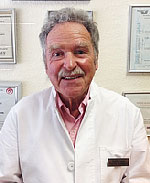
Professor
Lutz Lehmann MD
Professor Lutz Lehmann MD is a chief medical officer of the clinic.
Patients of the center are offered an individual approach and high-quality medical services: interdisciplinary diagnostics, cardiologic, orthopedic, gynecological and urological check up, complex diagnostics.
Diagnostics at Culminasceum Center of Preventive medicine

Dr. B. Regenbogen
Dr. B. Regenbogen is a medical director of Culminasceum center. This highly professional specializes in inner medicine, cardiovascular and complex medical diagnostics. Culminasceum center of preventive medicine is a medical facility with highly experienced professionals. Services: clinico-laboratorial tests, complex diagnostics of the locomotor system, skin, ultrasonic heart and vessels diagnostics.
The basic Check-up embraces all the necessary investigations to estimate your health condition. The investigation time (Check-up): 5 hours.
Diagnostics at Friedrichshafen clinical center

Head of Department:
Prof. Doc. honey. n.
Kareev Tesdal
The diagnostic department of Friedrichshafen Center is headed by Prof. Taare Tesdal, Dr.scient.med. This is a multiprofile diagnostics center that provides services in all areas of medicine, including: the diagnostics of pathologic changes in organs, cardiologic check up, ECG, orthopedic and urologic diagnostics.
Diagnostics at Schwarzwald-Baar Center

Prof. U.Fink
Prof. U.Fink is a chief medical officer of the center. Equipped by the newest medical technologies the center offers precise diagnostics and treatment in all medical areas: imaging diagnostics, invasive and non-invasive diagnostic methods, etc. It provides the diagnostics of oncologic diseases, vascular disorders, etc.
Diagnostics at Marienhospital clinic of inner medicine
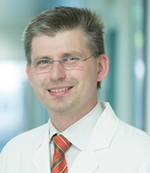
Head of Department:
Professor, MD
Carl Kristoff Schimanski
Prof. Schimanski, Dr.scient.med. is a specialist in diagnostics and therapy of inner organs, hepatology, gastroenterology, colonoscopy, endoscopic ultrasonic scan, ECG, stress echocardiography, transesophageal ECG, pulmonary diagnostics, etc.









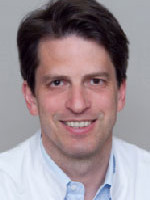
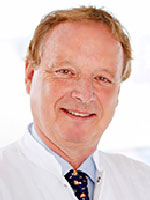

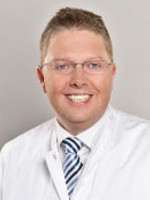
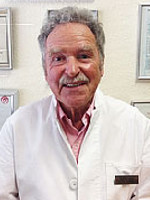
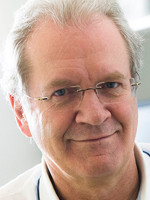





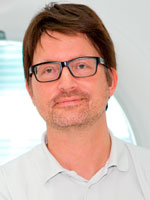
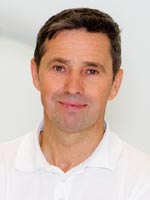






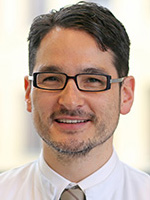
 Loading ...
Loading ...


